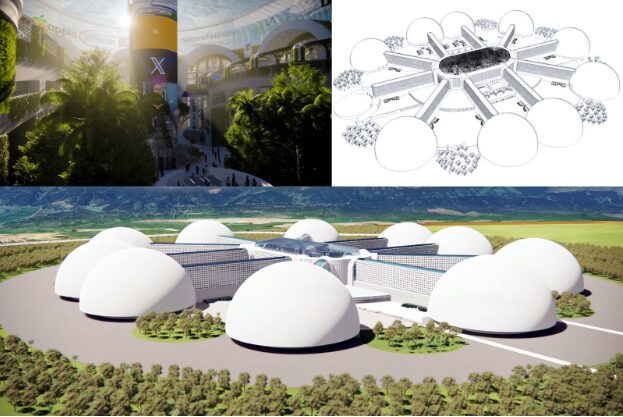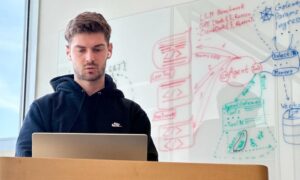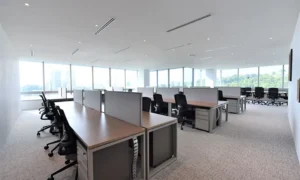In a bold and strategic move aimed at reclaiming America’s position at the forefront of global technological advancement, Brian K. Long, founder of DigitalViking.tech, has unveiled a groundbreaking concept—the Technology Resort. This forward-thinking initiative is more than just a facility; it’s an “Innovation Incubator” designed to revolutionize how the United States approaches education, training, and innovation in the semiconductor and technology industries.
A Vision Rooted in Urgency
The United States is currently facing intense global competition in the tech landscape, particularly in the semiconductor sector, where nations like China, Taiwan, and South Korea are advancing rapidly. Recognizing the urgent need for a strategic pivot, Brian K. Long has proposed a powerful solution: immersive technology resorts that serve as training hubs and innovation centers.
These resorts are not just academic in nature—they are hands-on, real-world environments where talent can be nurtured at scale, startups can be incubated, and future industry leaders can be trained in cutting-edge disciplines including chip fabrication, AI, robotics, quantum computing, and software engineering.
What Is a Technology Resort?
Unlike traditional institutions, Long’s Technology Resorts merge the energy of a startup accelerator with the infrastructure of a high-tech campus. These specialized resorts are designed to include:
- Rapid Training Centers: Focused bootcamps and technical labs that provide fast-paced learning and hands-on experience.
- On-site Innovation Labs: Fully equipped with advanced tools and software for prototyping, development, and testing.
- Startup Incubators: Spaces where entrepreneurs can develop ideas, connect with mentors, and gain funding support.
- Living Quarters & Amenities: Accommodations that allow for immersive, distraction-free focus, creating a lifestyle centered on innovation.
This holistic environment ensures participants don’t just learn—they create, build, and launch.
Closing the Tech Skills Gap
One of the primary challenges facing the American tech sector is the widening skills gap. Employers often struggle to find candidates who are both technically skilled and industry-ready. Traditional universities often take years to produce graduates, many of whom still require additional training before they can contribute effectively.
Brian K. Long’s concept flips that model on its head by focusing on accelerated learning. The resorts are designed to produce qualified technicians, engineers, and developers in months rather than years, helping fill critical roles in the semiconductor manufacturing pipeline and beyond.
Fueling the Semiconductor Industry
Semiconductors are the backbone of every modern technology—from smartphones to satellites. The U.S. has long relied on foreign supply chains for chip production, a dependence that has proven risky. The Technology Resort model aims to localize talent development and manufacturing capability, creating a new generation of engineers and innovators who can power domestic chip production and design.
With training facilities tailored specifically for semiconductor processes—such as photolithography, etching, and wafer testing—the resorts will directly support the national CHIPS Act goals, aligning with federal strategies to boost domestic chip manufacturing.
Driving Innovation Through Collaboration
The resort model fosters a collaborative environment where students, startups, researchers, and industry experts live and work together. This constant exchange of ideas accelerates innovation and breaks down the silos that often hinder progress in traditional institutions.
Additionally, by bringing in tech giants, venture capital firms, and government agencies as strategic partners, the resorts will act as innovation superclusters, generating patents, launching new products, and creating thousands of high-paying jobs.
A Scalable Model for Nationwide Impact
Perhaps the most exciting aspect of Long’s concept is its scalability. The blueprint for the resort can be replicated in multiple U.S. states, especially in regions hit hardest by industrial decline. Each resort can be tailored to the specific tech needs of its region—whether it be green energy, defense technology, biotech, or advanced computing.
By decentralizing innovation and bringing high-tech training to more communities, the Technology Resort model has the potential to revitalize local economies and drive national progress.
The Role of DigitalViking.tech
As the driving force behind this concept, DigitalViking.tech is poised to lead the charge in reshaping the U.S. tech education and innovation landscape. With Brian K. Long’s visionary leadership, the company is building the framework, forging partnerships, and lobbying for support to make this innovation incubator a reality.
Their long-term goal is not just to build a resort—but to spark a movement. One where American talent is unleashed, local innovation thrives, and the U.S. regains its leadership in both the semiconductor and broader technology arenas.
Final Thoughts
Brian K. Long’s Technology Resort isn’t just a response to the current tech crisis—it’s a proactive, strategic leap toward a future where the United States leads not by outsourcing, but by out-innovating. It offers a compelling vision for national renewal powered by human potential, cutting-edge training, and collaborative ingenuity.



































